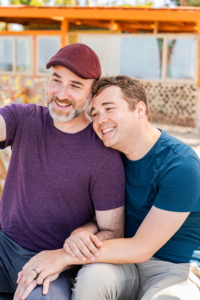Letter to the Community 2015
Read the 2015 Letter to the Community on Medium.
Trust us, it’s much prettier.
January 2015
Sh’vat 5775
Dear Friends,
2014 was a year of transformative change for the Leichtag Foundation. Our staff grew considerably as we expanded our work to include both direct programming and granting. We further explored and leveraged opportunities to robustly expose and use the Ranch as a platform for community gathering, education, local and national convenings—all filled with cutting-edge conversation and action.
2014 also marked our seventh year, our shmita year, of being an independent foundation. According to Jewish tradition, we have now completed a full cycle. We are at the end of our beginning and looking boldly ahead to the future while always deeply mindful of the legacy of our founders, Lee and Toni Leichtag, whose lives we seek to honor every day.
At the same time, we are in the midst of the Jewish communal shmita year which began in September 2014. Never, it seems has it been more appropriate to reflect, refine and report.
In the spirit of shmita, we are pleased to share seven of the Leichtag Foundation’s most important developments and learnings in 2014 which carry through to this year.
1. We’ve evolved to become both a program operator and grantmaker.
As the Foundation has developed and with the acquisition of the Ranch, we’ve identified programs and initiatives particularly in the area of talent development that we are best positioned to incubate before handing off. Most significant among these in 2014 was the Jewish Food Justice Fellowship which nurtured a cohort of outstanding young adults to support our self-sufficiency and Jewish North County strategies and also to advance projects at the Ranch. Four of the fellows will be staying on in San Diego, and they will all be important ambassadors for our work going forward. We also launched the first full year of our Hub co-working platform in new space and offered a number of professional development programs. We hired a full-time Hub Manager who will intensify the collaborations, agricultural festival celebrations, and learning taking place in the Hub. Hub members now number 25 professionals from 13 organizations, both start-ups and long-established. In 2014, we added Hazon, Soille Hebrew Day School and others.
The Hub members are starting to use the Ranch and now the farm as a tool to celebrate and mark Jewish agricultural festivals. Sukkot at the Ranch which was a co-production of the Foundation and the Hub, particularly Hazon, attracted a highly diverse mix of 2000 people during the week.
Operating programs and awarding grants no doubt makes our work more complex and requires a more diverse set of skills. However, with programmatic emphasis on developing the human capital and grassroots leadership of the programs, organizations and communities we seek to build and support, we find the two integrate naturally together.
Looking to 2015, we will continue and increase the operating function of the Foundation—through the expansion and full staffing of the Farm, the rollout of the Apprenticeship program, the launch of the Jerusalem Residency program, the continued programming at the Hub, the use of the Ranch House for community organizations, and other initiatives. As we are doing this, we continue substantial levels of granting but factor in the programs we operate when considering grant opportunities and combine them to create multiple bottom lines.
2. 2025 is no longer a realistic end date for the termination of the Foundation.
In 2009, the Leichtag Foundation made the decision to become a limited life foundation as opposed to one that will exist in perpetuity. The decision was made for a number of reasons including pursuing opportunities to address urgent needs with current dollars and the consideration of transparency and adherence to the family’s values when spending. With the acquisition of the Ranch at the end of 2012, a new set of opportunities have presented themselves, and the board decided earlier this year to reject the idea of terminating in 2025. We still consider ourselves a limited life foundation; we just don’t yet know how long our lifespan will extend and how we will hand off assets to appropriately honor the Leichtag legacy.
As we gain more experience with the use of the Ranch, we will be better informed to anticipate potential revenue sources, expense factors and the highest and best use of resources for granting and program implementation.
3. The “farm factor” is powerful.
The launch of the community farm at Sukkot created a powerful vision for the community. It was a joy to witness families and community members of all ages gathering food, learning about Jewish agricultural principles like shmita and celebrating the holiday together. In 2012, we held our initial focus groups with members of the North County Jewish community and heard from them that they feel deeply connected to the earth, the environment, what they eat and social justice. From those conversations, we listened to them articulating Jewish values and priorities and not even knowing they were doing so! They expressed interest in informal, inclusive gathering space that could help integrate all their most closely-held values. In 2014, we held follow-up focus groups and heard similar ideas with an emphasis on intergenerational activities related to connecting more deeply to the land, going back to the farm and helping provide fresh food to those who cannot otherwise afford it. We were heartened to hear from focus group participants that they feel North County is a more exciting and diverse place Jewishly than it was two years ago, although we know there is still much work to do.
Leading up to the official launch of the farm this year, we held two volunteer work days to prepare the vineyard for planting, soil preparation activities, and a gathering to prepare the land for the shmita release. Each of these events attracted a diverse group, and in each case we were inspired and humbled by feedback we received about how meaningful it was to integrate deep connection to the earth and stewardship of the environment with Jewish and universal values and traditions.
These activities and the excitement of the community have demonstrated to us that the farm can be a primary pathway in the center of sustainable community development, marrying the best of immersive education, opportunities for intergenerational relationship development, and hands-on social justice. As we look forward to 2015, we plan to be important catalysts for the field of Jewish community farming, hosting a national convening in January, the first of its kind for at least 50 years we believe.
4. The more we can integrate our strategies, the more effective we will be.
The implementation of the Jewish Food Justice Fellowship was one of our first intentional forays to integrating our strategies. The fellows worked at organizations that build self-sufficiency and food justice in the region; hosted events to build vibrant Jewish life in North County; visited Israel to learn about innovative agricultural technologies that could be implemented at the Ranch; and interacted with peer social activists on the ground in Jerusalem. The program manifested the power of weaving our strategies together to obtain a bigger, brighter picture.
This year we also helped form the Encinitas Environmental Education Cluster (E3), creating palpable excitement about the neighborhood we are privileged to inhabit. With six organizations signing the initial memorandum of understanding serving many ages, demographics and backgrounds, there is much potential for joint programming, collective strategy development and positioning our neighborhood as one of the most attractive in North America.
We describe the Ranch itself as the physical manifestation of our strategies. With the introduction of the Jerusalem Residency program in 2015, we will take this to the next level, expanding the influence of our work and relationships in Jerusalem and spreading and deepening our ability to make meaningful connections that endure. We’ve learned that the more our four strategies are integrated with each other, the greater the extent of our influence and connections we can effect.
5. We must provide quality professional development and support to nurture talent in our community.
We often describe the Foundation as a “talent agency”, and nowhere is this more important as we seek to help inspire, build and support vibrant and sustainable communities in North County Coastal San Diego and Jerusalem. These communities will not sustain without the right mix of leadership and “human capital” to innovate, motivate and create quality experiences and programs relevant to the time and demographic.
We’ve learned from programming in the Hub and with the Jewish Food Justice Fellowship that a broad focus on professional development is important, and that we must be responsive to and cognizant of professional and technical gaps and interest areas. Our Hub members have stepped up with enthusiasm and energy, coalescing around many of our shared goals and contributing to the agricultural and educational events that take place at the Ranch. We’ve assessed their professional development needs and also identified areas for peer training. Their success is our success, and we are committed to providing quality educational tools. With our new Hub Manager, we will take the offerings of the Hub and the opportunities for education and professional development to the next level. At the same time, we have struggled to maintain the right level of “energy” in the Hub. Since many of the members are part-time or often in the field, there is an ebb and flow to the energy that we are working to address through additional joint programming and new categories of membership in order to fully capture the power of the space.
In September, we held our first community-wide training in the Hub focused on improving social media skills and abilities. About 85 professionals from around the community—20 organizations—attended throughout the day and expressed a thirst for quality professional development experiences. We are particularly excited to be hosting the international Collaboratory next month in February where 140 social entrepreneurs and funders will learn together with professionals in our own community. Our visitors are pushing the envelope in many areas of Jewish life and will bring incredible creativity and energy.
6. Our opportunities for interesting revenue and a new model for social enterprise abound.
The last year showed us that greenhouse space at the Ranch attracts important opportunities. We have consumed all but 6,000 square feet of leasable greenhouse space at this time. Our microclimate is considered the best for growing in the county. Additionally, we’ve begun discussions on other compelling revenue sources which the board discussed earlier this year. An agricultural research center could produce interesting synergy and, in time, revenue. We’ve also started to explore opportunities around the vineyard and a retreat and conference center. All of this will take time and complex analysis to determine, but we are excited about the potential to create a new model. Additionally, the farm will be experimenting with some revenue producing activity, including a pilot CSA program, in 2015.
7. We will experiment with a flatter approach to management.
Along with growth in staff, 2014 brought some senior leadership changes that caused the Foundation to reassess our approach to management and decision-making. A core senior management team has been established, and we are experimenting with principles around collective and shared decision-making. As we enter a new phase for the Foundation, diverse and varied inputs to decisions are what is needed to propel our organization and to best serve the community. We recognize that what worked in our start-up phase may not be as effective now and are excited to experiment with and document this new model.
Thank you for your partnership, enthusiasm and critical feedback We are honored to work with you and look forward to much more learning in 2015!
The Staff and Board of the Leichtag Foundation
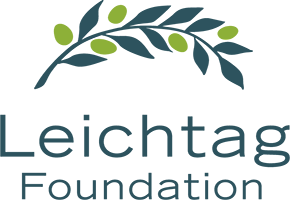

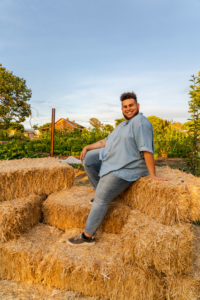 Black, Jewish and Queer. These three identities weave the fabric of who I am, but it took a long time to believe that they could exist together.
Black, Jewish and Queer. These three identities weave the fabric of who I am, but it took a long time to believe that they could exist together.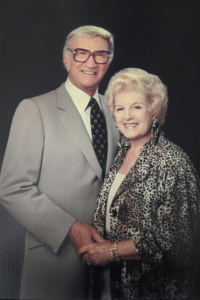 Lee and Toni Leichtag established the Leichtag Foundation in 1991 following the sale of their business. Lee and Toni were lifelong entrepreneurs with a passion for innovation and for supporting talent. They believed that only with big risk comes big reward. Both born to families in poverty, Toni to a single mother, they strongly believed in helping those most in need and most vulnerable in our community. While they supported many causes, their strongest support was for young children and the elderly, two demographics who particularly lack voice in our society.
Lee and Toni Leichtag established the Leichtag Foundation in 1991 following the sale of their business. Lee and Toni were lifelong entrepreneurs with a passion for innovation and for supporting talent. They believed that only with big risk comes big reward. Both born to families in poverty, Toni to a single mother, they strongly believed in helping those most in need and most vulnerable in our community. While they supported many causes, their strongest support was for young children and the elderly, two demographics who particularly lack voice in our society.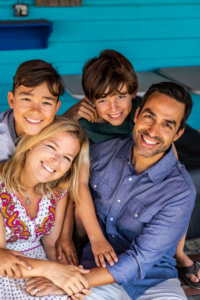 Lifelong Baltimoreans, Rabbi George and Alison Wielechowski and their sons, 11-year-old Lennon and 9-year-old Gideon, are more than pursuing the good life in Southern California. Having moved to San Diego more than three years ago, they are fulfilling a lifelong dream.
Lifelong Baltimoreans, Rabbi George and Alison Wielechowski and their sons, 11-year-old Lennon and 9-year-old Gideon, are more than pursuing the good life in Southern California. Having moved to San Diego more than three years ago, they are fulfilling a lifelong dream.
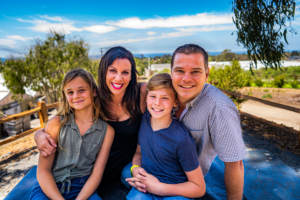
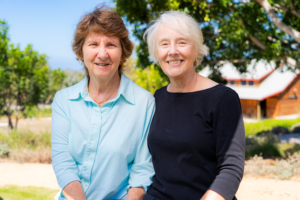

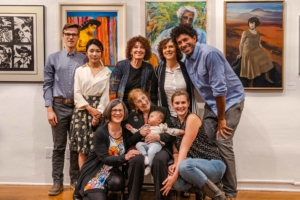
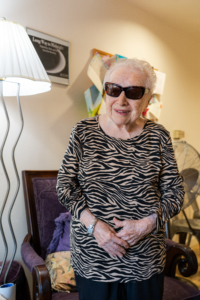
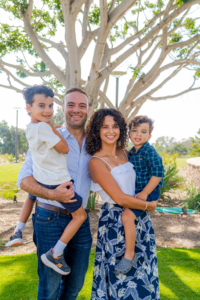
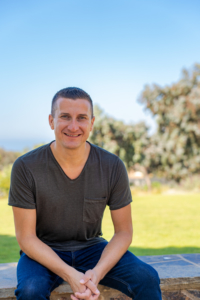 You would think that as the executive director of San Diego LGBT Pride, Fernando Zweifach López Jr., who uses the pronoun they, has done all the coming out they possibly can. A queer, non-binary individual who has worked for many years on civil rights issues, López also speaks openly and often about their father’s family, Mexican-American migrant workers who tilled the fields of rural California.
You would think that as the executive director of San Diego LGBT Pride, Fernando Zweifach López Jr., who uses the pronoun they, has done all the coming out they possibly can. A queer, non-binary individual who has worked for many years on civil rights issues, López also speaks openly and often about their father’s family, Mexican-American migrant workers who tilled the fields of rural California.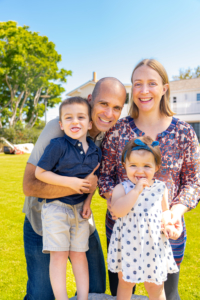 Stacie and Jeff Cook understand commitment. They live it.
Stacie and Jeff Cook understand commitment. They live it.